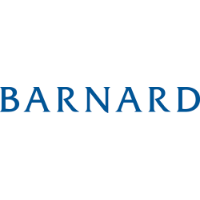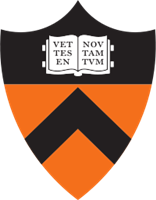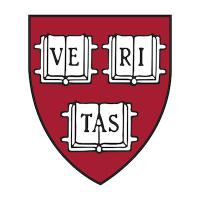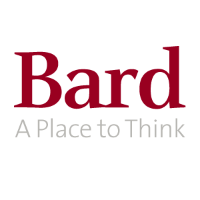What do they do?
Administer collections, such as artwork, collectibles, historic items, or scientific specimens of museums or other institutions. May conduct instructional, research, or public service activities of institution.
Also known as:
Collections Curator, Collections Manager, Curator, Education Curator, Exhibitions Curator, Exhibits Curator, Herbarium Curator, Museum Curator, Photography Curator, Vertebrate Zoology Curator
-
18.2%
Change
Ranks #24 in job growth rate50Job Openings
Ranks #13 in net job growth
-
Barnard College
New York, NY
-
Harvard University
Cambridge, MA
-
Princeton University
Princeton, NJ
-
Yale University
New Haven, CT
-
Columbia University in the City of New York
New York, NY
Looking for colleges that offer a specific major? Use the College Match Tool to find your best-matched schools and discover your estimated Net Price!
- Doctorate or Professional Degree (6%)
- Master's degree (37%)
- Bachelor's degree (37%)
- Associate's degree (4%)
- Some college, no degree (9%)
- High school diploma equivalent (5%)
- Less than high school diploma (1%)
Most Popular Majors that prepare Curators
-
#1
-
Degrees Granted
3,033
-
Female Students
2,548
-
Male Students
485
-
Median Starting Salary
$36,700
-
-
#2
-
Degrees Granted
763
-
Female Students
621
-
Male Students
142
-
Median Starting Salary
$47,533
-
-
#3
-
Degrees Granted
259
-
Female Students
186
-
Male Students
73
-
Median Starting Salary
$42,000
-
People in this career often have these skills:
- Reading Comprehension - Understanding written sentences and paragraphs in work-related documents.
- Speaking - Talking to others to convey information effectively.
- Active Listening - Giving full attention to what other people are saying, taking time to understand the points being made, asking questions as appropriate, and not interrupting at inappropriate times.
- Writing - Communicating effectively in writing as appropriate for the needs of the audience.
- Critical Thinking - Using logic and reasoning to identify the strengths and weaknesses of alternative solutions, conclusions, or approaches to problems.
- Complex Problem Solving - Identifying complex problems and reviewing related information to develop and evaluate options and implement solutions.
- Active Learning - Understanding the implications of new information for both current and future problem-solving and decision-making.
- Judgment and Decision Making - Considering the relative costs and benefits of potential actions to choose the most appropriate one.
- Monitoring - Monitoring/Assessing performance of yourself, other individuals, or organizations to make improvements or take corrective action.
- Systems Analysis - Determining how a system should work and how changes in conditions, operations, and the environment will affect outcomes.
People in this career often know a lot about:
- English Language - Knowledge of the structure and content of the English language including the meaning and spelling of words, rules of composition, and grammar.
- History and Archeology - Knowledge of historical events and their causes, indicators, and effects on civilizations and cultures.
- Fine Arts - Knowledge of the theory and techniques required to compose, produce, and perform works of music, dance, visual arts, drama, and sculpture.
- Administration and Management - Knowledge of business and management principles involved in strategic planning, resource allocation, human resources modeling, leadership technique, production methods, and coordination of people and resources.
People in this career often have talent in:
- Oral Comprehension - The ability to listen to and understand information and ideas presented through spoken words and sentences.
- Written Comprehension - The ability to read and understand information and ideas presented in writing.
- Oral Expression - The ability to communicate information and ideas in speaking so others will understand.
- Written Expression - The ability to communicate information and ideas in writing so others will understand.
- Deductive Reasoning - The ability to apply general rules to specific problems to produce answers that make sense.
- Near Vision - The ability to see details at close range (within a few feet of the observer).
- Inductive Reasoning - The ability to combine pieces of information to form general rules or conclusions (includes finding a relationship among seemingly unrelated events).
- Category Flexibility - The ability to generate or use different sets of rules for combining or grouping things in different ways.
- Speech Clarity - The ability to speak clearly so others can understand you.
- Problem Sensitivity - The ability to tell when something is wrong or is likely to go wrong. It does not involve solving the problem, only recognizing that there is a problem.
- Speech Recognition - The ability to identify and understand the speech of another person.
- Originality - The ability to come up with unusual or clever ideas about a given topic or situation, or to develop creative ways to solve a problem.
- Fluency of Ideas - The ability to come up with a number of ideas about a topic (the number of ideas is important, not their quality, correctness, or creativity).
- Information Ordering - The ability to arrange things or actions in a certain order or pattern according to a specific rule or set of rules (e.g., patterns of numbers, letters, words, pictures, mathematical operations).
People in this career often do these activities:
- Construct exhibits or parts of exhibits.
- Order instructional or library materials or equipment.
- Develop library or archival databases.
- Research topics in area of expertise.
- Provide information to the general public.
- Negotiate purchases or contracts.
- Evaluate characteristics of archival or historical objects.
- Evaluate scholarly materials.
- Write grant proposals.
- Write articles, books or other original materials in area of expertise.
- Plan community programs or activities for the general public.
- Promote educational institutions or programs.
- Train staff members.
- Direct activities of subordinates.
- Confer with others to conduct or arrange operational activities.
- Maintain inventories of materials, equipment, or products.
This page includes data from:

 Occupation statistics: USDOL U.S. Bureau of Labor Statistics Occupational Employment Statistics
Occupation statistics: USDOL U.S. Bureau of Labor Statistics Occupational Employment Statistics
 Videos: CareerOneStop, USDOL/ETA and the Minnesota Department of Employment & Economic Development
Videos: CareerOneStop, USDOL/ETA and the Minnesota Department of Employment & Economic Development









